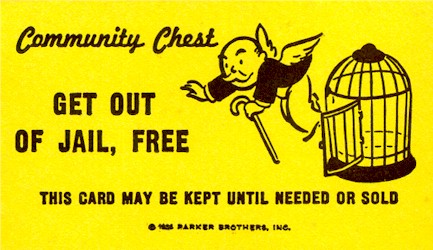It's Not Magic
In my teens, I was obsessed with magic.
At that time, there was no school to go to to become a magician. There were no online videos. (There was no internet.) Thank God for television. In those days there was often a magician on TV. The Tonight Show (Johnny Carson was well-known for his love of magic) was a godsend. Harry Blackstone, David Copperfield and Doug Henning had their own TV specials.
And there were many opportunities to see live magic. Hennning brought his Broadway show to LA. So did the amazing Ricky Jay. One of the great card men of all time, I saw Jay throw cards across a stage with such force they pierced a watermelon. (It was in the same period I saw the comedian Gallagher getting laughs for smashing watermelons with a wooden mallet.) My grandfather took me once a year to the Pantages Theater, where I witnessed the greatest stage magicians in the world perform their acts in one gala evening: The incredible Shimada! Slydini! Lance Burton! the always hilarious Great Thompsoni!
I joined the Society of American Magicians and the International Brotherhood of Magicians. My grandfather also took me to their annual conventions where I saw more great magic. I watched, I listened and I learned.
Every chance I could, I'd take the bus over Mulholland Drive to Hollywood Boulevard, where I'd spend the day at Hollywood Magic shop, soaking up the atmosphere, learning a new trick, and watching, watching, always watching. Of course I also bought tricks: the Linking Rings, Hippy Hop Rabbits, a deluxe copper Dove Pan.
Most memorable of all, I sometimes got an invitation to the world famous Magic Castle, a private club for professional magicians. In other words, Mecca. At the Castle, I saw many of the most legendary, old school magicians in the world performning close-up magic with cards and coins, cups and balls. Those guy were the real deal, genuine masters of the craft. Think Clark Gable, James Stewart, Humphrey Bogart, Jimmy Cagney.
Mostly though, I learned magic from books and magazines. Every autumn (I think it was), I waited for the postman to knock at the door with the brand new Tannen's Magic catalog. It was too thick for the mail box! Tannen's catalog provided me countless days and nights of fantasy. It offered hundreds of tricks – every one of them carefully described and illustratted – from double-headed pennies to the secrets for sawing a woman in half; from a simple fake thumb tip for vanishing a silk handkerchief to the mind-blowing, Zig Zag Lady. I acquirred a pretty good collection of books, including my prized eight-volume Tabell Course in Magic, Bobo's Modern Coin Magic and "The Professor" Dai Vernon's, Stars of Magic. I subscribed to Genii, The International Conjurer's magazine. Every month a new issue, full of tricks and tips and wonderful ads that further fueled my burning imagination.
Back at home, I raised white doves and rabbits. And I began performing, well-before I could drive. My mother chauffeuring, I criss-crossed the valley most weekends, performing as the "Magician Extraordinaire" for children of all ages. (Mostly just actual children, but also their parents) at birthday parties and various events. Between shows, I went over my routines again and again, perfecting my tricks, tinkering with my patter, toying with the sequence of effects.
During those formative adolescent years, I learned many things and acquired skills and habits that would serve me in the future.
But it wasn't my destiny to become a professional magician. No, it wasn't my calling to bring the art of magic into the 21st century.
The incredible David Blaine would do that.
You probably know Blaine. He's become as much performance artist as magician in recent years. And become something of a household name in the process.
Blaine brushed aside the the formal elegance (some would say stuffiness) that had long characterized stage magic in the past. Blaine had important predecessors who paved the way, of course. But he changed the game altogether. Blaine was hip hop. He made the street his stage, spoke the language and rhythm of the new culture, and blew people's minds.
Here's what Blaine said about the art of magic. "Whether you're shuffling a deck of cards or holding your breath, magic is pretty simple: It comes down to training, practice, and experimentation, followed up by ridiculous pursuit and relentless perseverance."
The same is true of great acting.
More than talent, much more than talent, acting "comes down to training, practice, and experimentation, followed up by ridiculous pursuit and relentless perseverance."
Training, practice and perseverence are an invitation for your talent to reveal itself.
For the actor, as for the magician, it's an illusion to believe that you can get by on natural, "untrained" talent.
In fact, it takes a hell of a lot of work to get good, really good, at anything.
Great acting doesn't come by magic.
It only seems so because we don't see what came before.
Kevin Spacey says that before every take Jack Lemmon would say, "It's magic time."
What Lemmon didn't say was that before the magic came work. Decades of work.
It takes a lot of work – training, practice and perseverence – to make it look like magic.


















.png)
